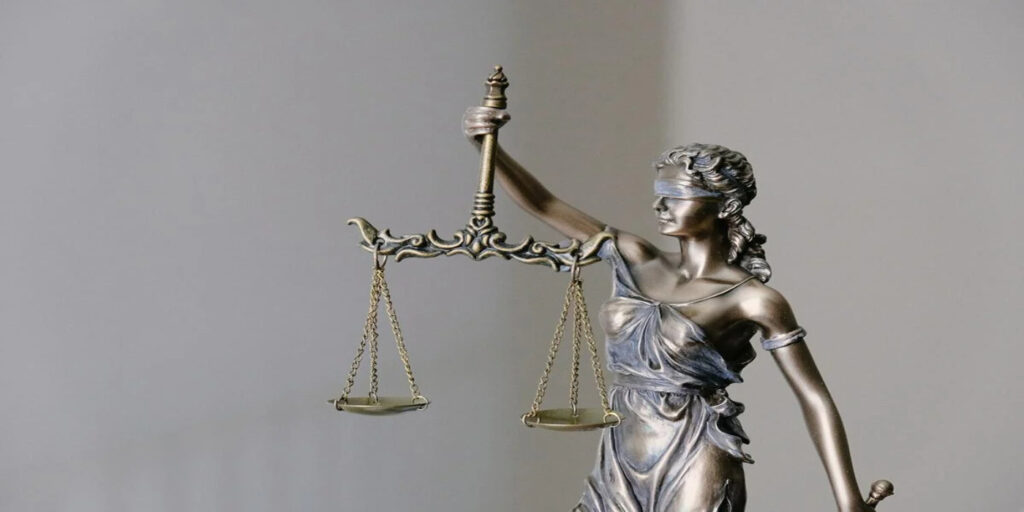The creation of a separate court system in Jackson is valid, the Mississippi Supreme Court ruled Thursday, but appointing judges who would work alongside elected judges in the Hinds County Circuit Court is unconstitutional.
In an 8-0 decision, the Supreme Court reversed and rendered the claim that the appointment of four special, temporary judges to the Hinds County Circuit Court was lawful. Specifically, the justices found House Bill 1020 violates the state constitution’s requirement that circuit court judges be elected by the people for a term of four years.
“In short, reading the plain language of the statute, we find the new Section 1 judges are just unelected circuit judges, appointed into the Seventh Circuit Court District to serve three-and-a-half years instead of four,” Justice James Maxwell wrote in the majority opinion.
“Even viewing Section 1’s language with a strong eye towards validity, we find Section 153’s express election requirement prohibits these particular circuit court judgeships, which are appointed for a term, and not elected,” the opinion reads. “Thus, Section 1 cannot survive constitutional scrutiny.”
The justices who joined the majority opinion were Josiah Coleman, Dawn Beam, Robert Chamberlin, David Ishee and Kenneth Griffis. Justice James Kitchens concurred in part and dissented in a separate order joined by Justice Leslie King. Chief Justice Michael Randolph recused himself from the appeal.
The law will create the Capitol Complex Improvement District court to handle cases stemming from Capitol Police arrests within the district and across Jackson. The law also directs the chief justice to appoint four temporary judges to work alongside elected Hinds circuit judges.
The justices said there is no constitutional barrier for the chief justice to appoint special judges to the Hinds County court or any judicial district in the state facing “exigent circumstances,” such as emergencies and to address backlogs, according to the order.
Paloma Wu, deputy director of impact litigation at the Mississippi Center for Justice, said the Supreme Court read the plain language of the constitution and came to a decision that wasn’t controversial.
“I’m over the moon that (the plaintiffs) had their experiences as citizens of Jackson and Mississippi vindicated,” she said. “They are entitled to be treated just like every citizen in this state is treated. When the state constitution said you get to elect circuit court judges, that the constitution means the same thing for them as it means elsewhere.”
In the Thursday ruling, the justices also affirmed several aspects of HB 1020.
The majority ruling dismissed Randolph as a defendant in the lawsuit based on judicial immunity, which is a legal practice that shields judges from civil lawsuits when they perform judicial acts. Randolph’s attorneys have argued his appointments under HB 1020 would be a judicial act.
Hinds County Circuit Clerk Zack Wallace was also dismissed as a defendant.
The majority agreed with Hinds County Chancery Court Judge Dewayne Thomas that the creation of the Capitol Complex Improvement District court is constitutional and that the Legislature has the authority to establish inferior courts like the CCID court as needed.
Kitchens and King, however, did not agree with the majority’s decision to uphold the Capitol Complex Improvement District Court and that the Legislature had “a fatal constitutional deficiency” when it failed to place the proposed inferior court under the supervision of another constitutional court.
“Upholding the CCID court requires one to resort to a mind-reading exercise in statutory construction — that, because a statutory mechanism facilitating controlling authority by the circuit court must be present and should have been enacted, we will simply pretend that it is present and proceed as if it had been enacted in the real world,” Kitchens wrote. “This fiction of convenience overreaches our judicial function and, of ultimate importance, our constitutional duty.”
He and King also raised concerns about how people who are convicted of misdemeanors would serve time. Those convicted in the CCID court would go to the Central Mississippi Correctional Facility, rather than a county jail, according to the order.
Wu, who represented the plaintiffs, said the Supreme Court was right to require the CCID court to have appealability, but they prefer that the court not exist in the first place.
The Supreme Court ruling comes two months after justices heard oral arguments about the constitutionality of the law, and the appeal stems from a lawsuit filed on behalf of Jackson residents shortly after Gov. Tate Reeves signed the bill into law.
HB 1020 was supposed to go into effect July 1, but it was paused through a separate lawsuit in federal court. The temporary restraining order blocking the chief justice from making appointments is expected to be lifted pending a written order by U.S. District Court Judge Henry Wingate.
But Wu, who is representing plaintiffs in a lawsuit that has been consolidated with the HB 1020 case, said now that the Supreme Court has struck down the appointment of judges to the Hinds County Circuit Court, she has difficulty seeing claims against those appointments move forward in the federal case.
Wingate is overseeing another challenge to HB 1020 brought by the NAACP on behalf of Jackson residents and several groups, which argues that the separate court system is racially discriminatory and unconstitutional.
The U.S. Department of Justice has asked to intervene in the lawsuit, which to date, Wingate has not taken action on.
The CCID court may not be safe because it is still being litigated at the federal level, and so is the expansion of Capitol Police’s jurisdiction, Wu said.
Source : Mississippi Bussines Journal


